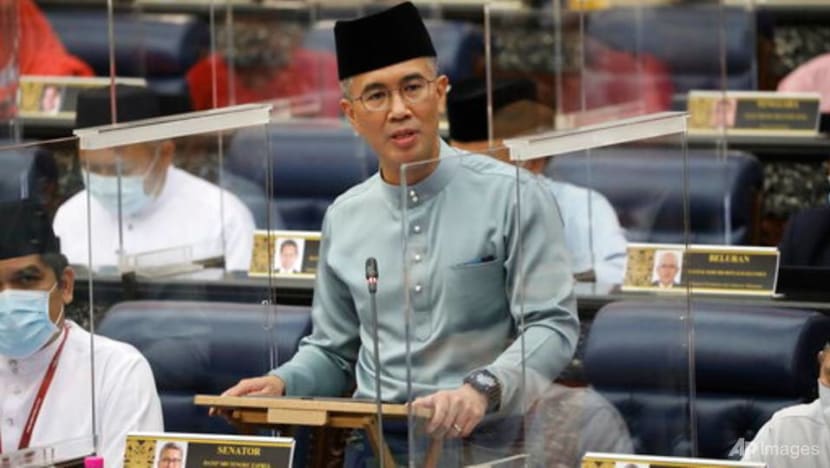Malaysia finance minister to propose raising debt ceiling to 65% of GDP
If approved by parliament, this will be the second time the country's debt ceiling has been raised in just over a year.

Malaysia's Finance Minister Zafrul Aziz delivers the 2021 budget speech at parliament in Kuala Lumpur, Malaysia, Friday, Nov. 6, 2020. (AP Photo)
KUALA LUMPUR: Malaysian Finance Minister Tengku Zafrul Abdul Aziz said on Friday (Sep 3) that he will propose to raise the statutory debt limit to 65 per cent from the current 60 per cent of the gross domestic product (GDP).
If approved by parliament, this would be the second time Malaysia’s debt ceiling has been raised in just over a year. The debt ceiling was raised from 55 per cent to 60 per cent in late August 2020. Prior to that, the debt ceiling had not been raised since the global financial crisis in July 2009.
The minister was reported as saying by Bernama that although the statutory debt-to-GDP ratio is currently at about 58 per cent, the figure would probably increase to above 60 per cent by the end of the year.
“Today, we are still below 60 per cent, at about 58 per cent of our statutory debt limit. Even if we breach it, it will be marginal, but we still have to go to parliament to increase the limit.
“The plan is to present it (the proposal) to the Cabinet next week, then we will bring it to parliament at the right time,” he said during a press conference.
When asked if the government would consider foreign borrowings due to the limited fiscal space, Tengku Zafrul said that the government would not borrow in foreign currencies for now.
“We have ample liquidity in the market that we can tap into. We expect to fund all the stimulus packages by tapping into the local ringgit market, and we have enough liquidity without being concerned about impacting the local market,” he said, according to the Bernama report.
While he admitted that the government has limited fiscal space, he said it has not stopped the government from continuing to expand its fiscal policy to support the economy.
“We have seen how we have revised our spending to increase borrowings, and our deficit has gone up, which is forecasted to be up to 6.5 per cent to 7.0 per cent,” he said.
According to the minister, about 97 per cent of the government’s total borrowing is ringgit-denominated and only 3 per cent is in foreign currencies.
Related:
The government has so far rolled out stimulus packages worth RM380 billion (US$90 billion) to mitigate the impacts of COVID-19.
Commenting on suggestions to reintroduce the goods and services tax (GST) in Budget 2022, Tengku Zafrul said the government is focusing on reviving the economy, and it is not the right time to bring back old consumption taxes like the GST.
He said the government is looking at ways to enhance its revenue and to address the issue of revenue leakages.
The GST was abolished by the Pakatan Harapan (PH) government in September 2018. Instead, PH reintroduced the sales and services tax, which levies between 5 per cent and 10 per cent on the sale of goods. Services attract a 6 per cent levy.
BOOKMARK THIS: Our comprehensive coverage of the COVID-19 pandemic and its developments
Download our app or subscribe to our Telegram channel for the latest updates on the coronavirus pandemic: https://cna.asia/telegram













